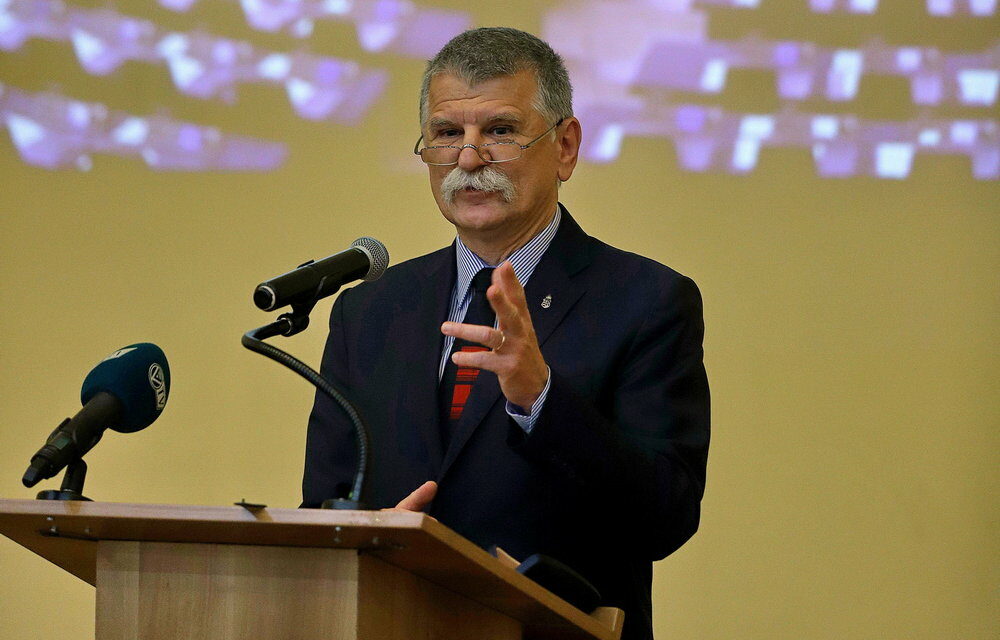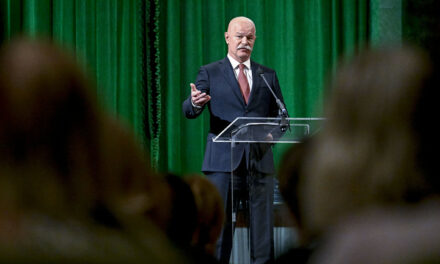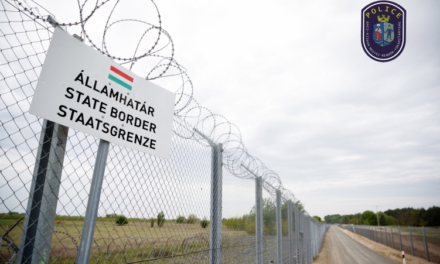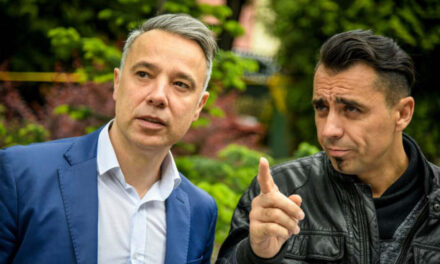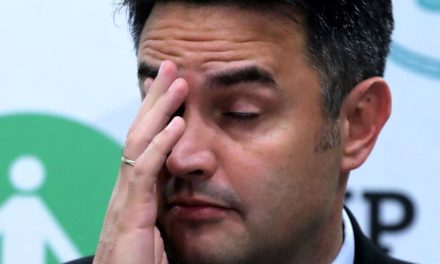The sanctions policy that was formulated in Europe in response to the war actually caused high inflation, an energy crisis and the threat of recession, the President of the Parliament declared on Saturday in Orosháza.
László Kövér, Let's say no to sanctions! at one of the stations in Békés county of the country tour series, he said that Europe voluntarily involved itself in the economic war.
The politician stated that the government's goal is to ensure that the performance of the economy in Hungary does not decline in the event of a looming European recession. In addition to small and medium-sized enterprises, the government is also trying to provide support to large enterprises in order to preserve jobs - both during the epidemic and now - by encouraging companies to improve their competitiveness through modernization, the speaker said.
Hungary's gas supply is safe at the moment. The capacity of our gas reservoirs currently covers residential needs for 1.3 years, including industrial consumers, which is sufficient for 60-70 percent of the annual needs, he said.
László Kövér said,
although Hungary has been convinced for a decade or so that the Russians are unreliable partners, the facts prove that they did not use the gas as a weapon, but the other way around: the European Commission tried to turn it against them through sanctions.
Hungary condemned Russia's military aggression against Ukraine from the first moment. Hungary's fundamental national interest is the existence of an independent, democratic, prosperous Ukraine that ensures prosperity for its own citizens in their native land without national discrimination, emphasized the President of the Parliament.
According to the politician, what is happening now is the deliberate destruction of Europe's economy. Although it was promised at the beginning of the sanctions policy that they would not affect energy carriers, the self-independent European Commission is preparing more and more packages and has extended the restrictions first to oil and then to gas.
László Kövér announced
according to the news, the ninth EU sanctions package is already being prepared, which intends to extend the restrictions to nuclear energy as well. However, the Paks power plant, which produces a significant part of Hungarian electricity, can only operate with Russian heating elements. The sanctions planned for nuclear energy would therefore be tantamount to a disaster for Hungary, not only from the point of view of the population, but also from the point of view of the industry
- stressed the politician, pointing out that such restrictions can therefore only be supported if Hungary is exempted from them.
The European Commission justified the introduction of sanctions by saying that they will harm the Russians. On the other hand, the Russians collected as much money from energy carriers in half a year as in the entire previous year, said the Speaker, recalling that
already one of the results of the sanctions introduced in 2014 was that it forced the Russians to be self-sufficient, and thus the country that previously needed imports became one of the world's largest grain exporters.
The politician, who also holds the position of president of the Fidesz national committee, explained that the Hungarian dollar left, financed by the Soros, is on the side of sanctions and war, and in everything they do the same thing as the representatives of the West who are on the wrong path and the leaders of the bureaucracy.
Everything that is happening in Europe today is happening without the authorization and consultation of the people.
People were not asked about migration or whether they wanted to pay the price of the sanctions, László Kövér said.
He emphasized that the national consultation is necessary so that the Hungarian government can argue in Brussels for the protection of national interests by asking people's opinions.
MTI
Cover photo: László Kövér, the President of the National Assembly, gives a speech on Let's say no to sanctions!
on November 5, 2022 at the town hall event of the traveling forum. MTI/Péter Lehoczky

